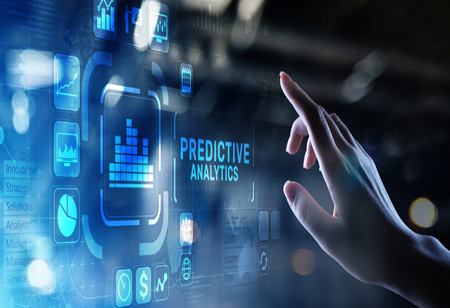
Predictive Analytics: Considerable Changes in Banking Sector


As the computers getting smarter every day, so does our tasks are easing out. Most importantly the crucial sectors such as healthcare, financial institutions, and more demand high attention as these sectors involve the critical consumer databases and historical transactions with the aim of predicting the future. Thus, predictive analytics could aid in cutting down the costs as well as enhance the overall banking experience.
Predictive analytics is the process of using computer models to forecast future events using sophisticated programs and depend on certain efficient technologies such as artificial intelligence, data mining, and machine learning to process massive information. Using these technologies the model would analyze and predict the future happening based on the current conditions.
The predictive analytics could enhance the overall banking experience for the customers in several ways, it could find it unsettling that financial institutions that have no much information, and that rely on computers for decision making could affect one’s life. On the other hand, computers are always available and would provide a similar service to every customer without being partial to any customers.
Eases Budgeting
These computer models ease the customers in managing their finances. As they aid in differentiating the income and expenses that typically hit your account, and they could also notice where exactly the customer's money drains out. Consequently, these programs also have the potential to prevent problems. One such could be alerting the customers when they are running short of money as their due date nears.
Improve Credit Scoring
Predictive analytic is quite popular for credit scoring models as they use data to foretell the customer's creditworthiness. If the FICO credit score applies statistical analysis to forecast the customer's behavior, such as how they are close to missing their payments. Then the score is based, in part, on how borrowers similar to the existing customers have performed in the past.
Finance Management
This software could assist in providing a clear picture of decision making. For instance, reviewing the customer's finances, an intelligent program could determine whether or not it makes sense to make extra payments on loans, and how much you might be able to put toward eliminating your debt or add to savings.
Curb Fraud Activities
At times the identity theft is totally out of your control. Even if one is notably careful, the cybercriminals could easily steal the customer's information in data breaches and use their card number or other sensitive details. Banks using predictive analytics are better equipped to detect these problems. They may even notice when somebody else is using their customer's credit card or if somebody logs in to their customer's account in an unexpected way. They may also be able to reduce bad check scams, which can cause significant losses for victims, by analyzing data patterns.
Simplifies Loan Procedures
Lending processes are getting more complex on how the loan applications are evaluated. The lenders also understand that not everybody has a good FICO score but they expect the customers to still possess a good score to qualify for loans. Certain customers have never created a credit, however, others are still good borrowers, despite having a few negative items in their credit reports. It is also been considered that some lenders casually deny loans due to outmoded loan underwriting criteria, thus, artificial intelligence comes in aid to nontraditional borrowers to get their loans approved.
The Financial institutions that have already employed predictive analytics in their banking procedures have found that the consumers can find those applications annoying such as when they are trying to use the customer's debit card and the bank assumes them a thief. This minimizes the banking risks as well as eases the banking experience.